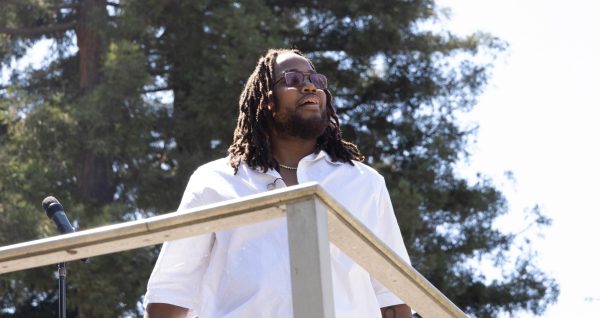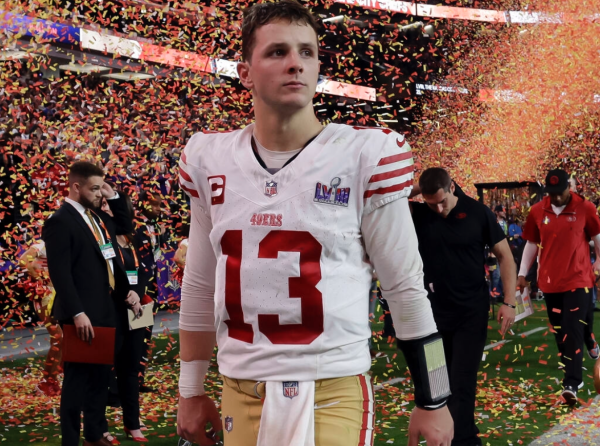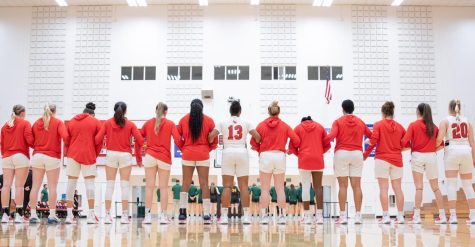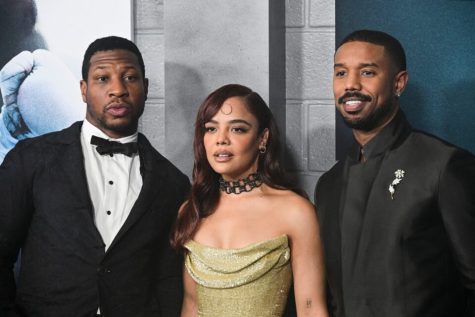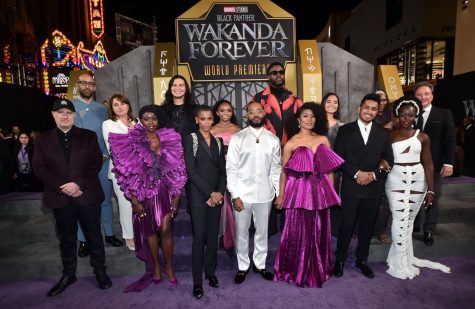Professional athletes should speak out on issues
March 14, 2018
During an Uber ride with ESPN broadcaster Cari Champion on Feb. 15, NBA players LeBron James and Kevin Durant discussed political issues, childhood, family and had negative comments about President Donald Trump. The interview took place in a car. Champion was driving and James and Durant sat in the back while a camera recorded the interview. The video was soon posted on the Twitter feed of “Uninterrupted,” James’ podcast.
In response, Fox News journalist Laura Ingraham denigrated James regarding his comments on politics. “Keep the political commentary to yourself,” Ingraham said on Fox News later that day. “Or as someone once said, shut up and dribble.”
After Ingraham’s remarks, James posted a photo on Instagram that read, “I am more than an athlete,” with the caption #WeWillNotShutUpAndDribble. Since then, athletes from different professional sports have supported the hashtag by posting it on their social media pages.
Five-time NBA champion Kobe Bryant expressed his support during his Oscars acceptance speech for Best Animated Short Film, “Dear Basketball.” The former Lakers great clutched his Oscar as he put Ingraham on blast, “As basketball players, we’re really supposed to shut up and dribble but I’m glad we do a little bit more than that.”
And they are right. They are more than athletes. Their occupation shouldn’t determine their ability speak on issues that occur in our country. They don’t need to have a degree in political science or run for office to have an educated opinion on any social concerns.
Former San Francisco 49ers quarterback Colin Kaepernick made major headlines back in August of 2016 for choosing to sit on the bench during the national anthem to protest oppression and police brutality against African Americans and people of color in the United States. By the end of the night, it gained national attention.
For the rest of the season, Kaepernick kneeled during the national anthem alongside several teammates. His support spread throughout the National Football League, and other players began to kneel, too. Seattle Seahawks cornerback Jeremy Lane was the first non-49ers player to do so.
But Kaepernick’s power of influence goes beyond the NFL. Within weeks of the first protest, athletes from all areas of sports such in the nation showed solidarity by kneeling during the national anthem, sparking a national movement. The protest spread to high school student-athletes across the country.
Kaepernick has been unsigned since the end of the 2016-17 season, he is still vocal about the inequality of black people and police brutality. He achieved his $1 million pledge to organizations and donated to 41 charities in total by January 2018, according to SB Nation. Through his efforts, he has embodied how an athlete uses his platform to become a catalyst of change.
Kaepernick’s actions epitomize how an athlete’s voice can influence a community and a nation. Often embod as role models athletes have the power to positively impact younger generations.
Hometown Oakland Raiders star Marshawn Lynch has not shied away from supporting Kaepernick. He followed his lead by sitting down for the national anthem during the 2017-18 season.
Athletes like legendary boxer Muhammad Ali have used their advantage of being in the public eye to be an advocate for change. Ali refused to be drafted for the Vietnam War and spoke up on Black pride during the Civil Rights Movement.
U.S. Olympians Tommie Smith and John Carlos made a political demonstration during the national televised 1968 Olympics. During the national anthem, they bowed their heads and raised their black-gloved fists as a “Black Power Salute” and took off their shoes to protest poverty in America, according to Washington Post.
Decade after decade, athletes have consistently spoken out on controversial issues that exist in our country. They have utilized multiple means of conveying their message to the world through demonstrations, interviews and social media. Millions of people across the world watch this, especially fans and athletes have the power to influence them. With their high-profile, they can provide a voice to those who are voiceless.





